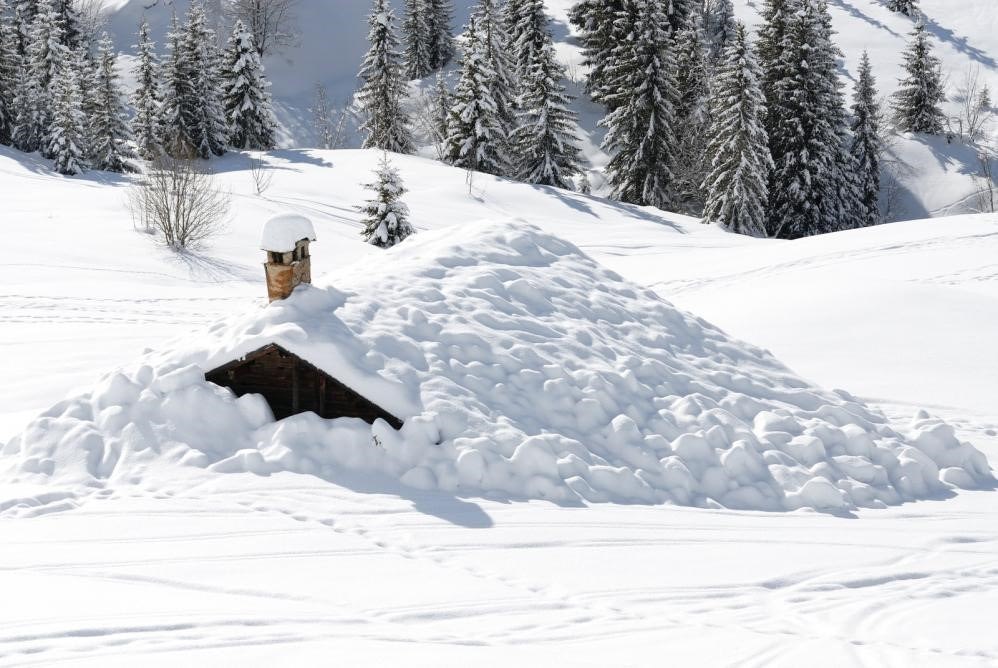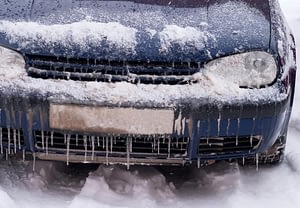
As winter ensues and Mother Nature unleashes her brutal wrath, do you think you are prepared to protect your family? The home and car insurance experts at AAG Insurance offers tips to protect your home and car during the winter.
Here are a few tips from the team at AAG Insurance, which can help you prevent that damage by fortifying your home and car against the elements the smart way.
Winter Safety Tips for Your Home
Prepare in Advance
Insulation and a Properly Functioning Roof
It’s better to be safe than sorry. Proper insulation can help protect from an onslaught of pests and moisture during a winter storm. It is also important to be aware that water can refreeze in the areas it accumulates which may lead to even more ice-buildup and damage. A properly maintained roof can decrease the odds of damaging leaks to your home as the ice and snow melt.
Attics and crawl spaces that are well insulated against the elements can also prevent pipes from freezing up. To prevent this completely, make sure that your garage and other areas have adequate insulation to handle the ravages of winter. Not only will your home remain warm and cozy, but you can minimize damages as a result of bursting pipes.
Electrical Dangers Within and Outside the Home
Home-based electrical fires account for approximately 51,000 fires each year. Do you want to be part of that statistic?
While electrical issues are common, they can prove to be a fire hazard in the winter when the heaters are running 24/7. To help alleviate problems, hire a professional to assess your home inside and out to ensure your heating systems are functioning properly and check for any frayed or damaged wires. Pay special attention to wires that are susceptible to the cold and have nests cleared from around electrical fixtures before they ignite.
Trim those trees
A snowstorm can leave trees laden with enough snow to break branches, walls, and bones because of it. Before you reach the point where there is nothing you can do about it, start trimming them. Even the sturdiest branch is no match for piles of snow that keep piling on. Remain on the safe side by cutting down those branches during favorable weather conditions.
Search for branches that are large enough to cause serious damage if they come crashing down. This includes branches that are over your home, near power lines and those that are near windows. Falling branches can also damage shingles when they move in the wind. This can allow melting water to penetrate your attic and seep into the rooms below.
Besides overhanging branches, you should also take a look at trees that are excessively leaning. While a tilting tree may not be in danger of falling, the added weight from the snow can make it topple over – straight onto your roof. A good rule of thumb to determine whether you should cut a tree down is to check the ground surrounding it. The cracked and swollen ground is a good indication that the tree is on the verge of collapse.
Prevent water damage
One of the biggest sources of damage for homes during the winter involves freezing pipes. A broken or damaged pipe can lead to a loss that may be covered by home insurance in Maryland, but can also be prevented with the following measures:
- Drain and disconnect all hoses and water supply lines.
- Make sure that the pipes that are located in basements, garages and crawl spaces have adequate insulation.
- If you leave your home for a while, keep it warm by setting the thermostat to a low temperature.
- Leave the garage door closed to block draughts.
- Allow cold water to drip from faucets if it gets really cold to prevent the water in them from freezing up.
- Check out where the water shutoff valve is located so you can reduce the damage if a pipe bursts despite your best efforts.
Winter Safety Tips for Your Car
Wash it regularly
Rock salt may prevent people from slipping on ice and injuring themselves, but it can also do a number on your car. It can chip off a brand new paint job, rust car parts faster than normal and 
That’s because rock salt is very corrosive. While it can provide traction, it can ruin metal components of a car. Ask anyone who lives near the ocean how fast their cars rust and you’ll understand.
The best way to prevent damage from salt is to wash your Vehicle as frequently as possible. This will rinse away the salt that accumulates on the body, undercarriage, and tires. Focus on removing as much of the salt as possible to slow down the rusting process. If there are no salt deposits on your car, you can save a lot of money in maintenance costs as well.
Check the windshield wiper fluid
Windshield wiper marks are a hassle to get rid of, but not if you take preventative measures beforehand. While a thorough rinse can get rid of those stains, a wiper that is frozen won’t be of much help in that department. Certain types of wiper fluids tend to freeze over in winter, so make sure that you choose a brand that doesn’t.
Most fluid is rated at -30°C; however, depending on the area you live in you might have temperatures that fall lower. Fluid that freezes while you are driving during a snowstorm can impede your vision and result in a serious accident.
Before the winter, purchase specialized fluid that can prevent this from happening. Adding a small amount of anti-freeze to the fluid can also help.
Keep your car inside
Even though getting your car out of the garage can take precious minutes, it beats shoveling off snow and ice from it in the morning. Storing your car in the garage when it is not is use during the winter will help prevent ice buildup.
Whether you need home insurance or car insurance in Bel Air, Maryland, you need an insurance provider that won’t let you down. Contact the home and car insurance experts at AAG Insurance today and choose from a large range of policies that can meet your needs.
Filed Under: Auto Insurance, Home Insurance | Tagged With: bel air insurance agent
